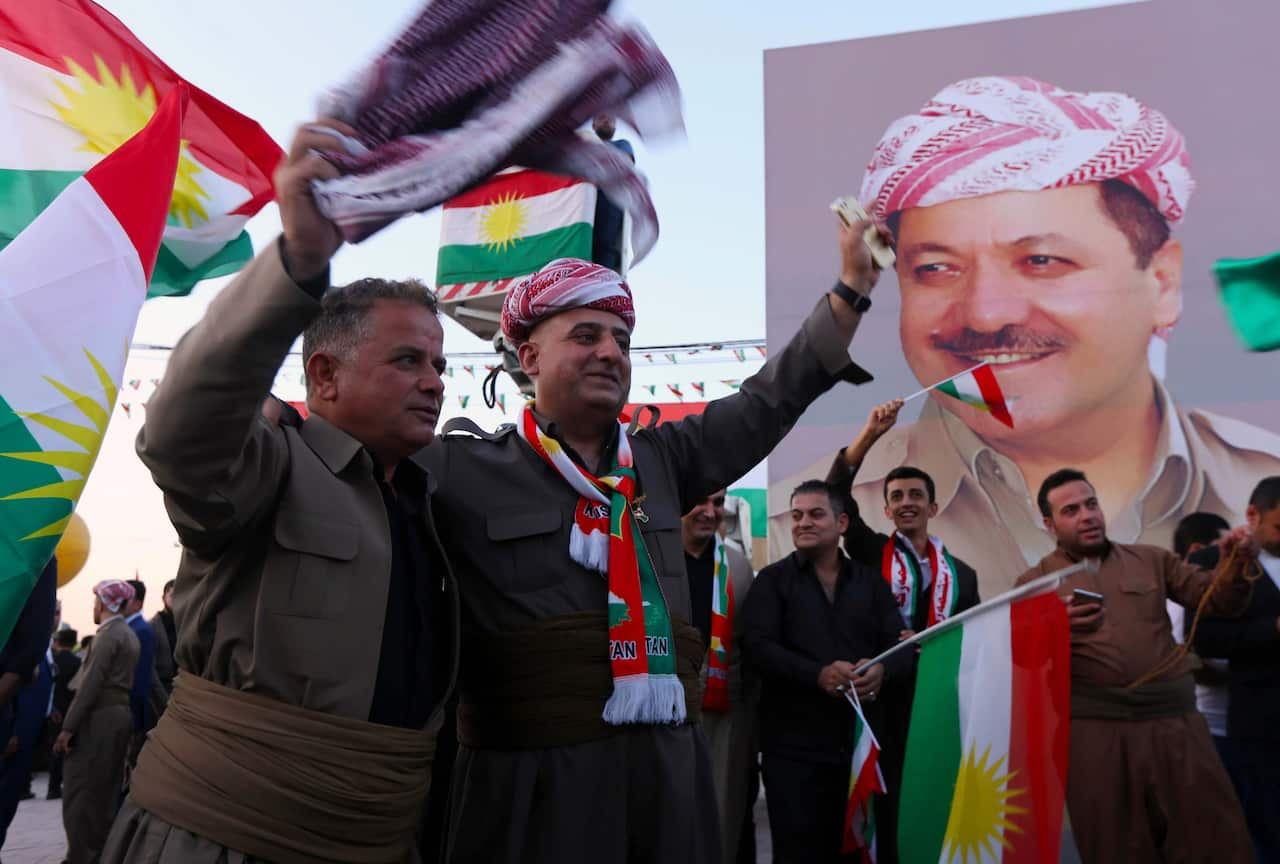Kurdistan’s Independence referendum is scheduled for 25th September by the Kurdistan Regional Government (KRG).
Recently a meeting took place between representatives of the United States, Britain, the United Nation and the Kurdish president Masoud Barzani, in the Kurdistan Region. Shortly afterwards KRG president told a large crowed at a referendum rally in the city of Zakho, that no better alternative has been provided by the superpowers, thus the referendum will not be delayed.
The question that Kurds, both in the autonomous Kurdish region of Iraq and around the world will be asked to answer is: "Do you want the Kurdistan region and the Kurdistani areas outside the region's administration to become an independent state?"
Although the results of the referendum will be non-binding, there has been fierce opposition, particularly regionally as well as internationally. Most countries argue that it is not the right time to hold a referendum, and that it could further destabilize the region and will disrupt the war against IS.
A Kurdish delegation from the Kurdish Referendum Council has already visited Baghdad to discuss the Independence referendum. A senior U.S. delegation visited the Kurdish capital of Erbil last month led by Secretary of Defence James Mattis.
Although Mattis has expressed his understanding of rights of the people of Kurdistan, he also reiterated the expected US position regarding Kurdistan’s independence.
"If the vote in that referendum is Yes, that doesn’t commit the Kurdish Regional Government to any particular action."
The Kurdish authorities are continuously reassuring all those concerned about the independence referendum that the outcome will not be problematic for neighbouring countries, and will not hinder the efforts in the war against IS.
As well as external objections to the referendum, there is a strong campaign in the Kurdistan Region against this month’s Independence referendum arguing that the time is not right for it.
The “No for Now” campaign, led by controversial Kurdish businessman Shaswar Abdulwahid, who is also the owner of the Nalia Media Group (better known as NRT) asks for the referendum to be postponed at the same time, encourage voters to vote "No" if the referendum goes ahead.
“No for Now” has also launched a television station, which has raised many questions about possible foreign support for the well-funded No campaign, and the group have also held demonstrations and 'carnivals' ahead of the vote.
In an interview with SBS Kurdish, New-York-based freelance journalist and photo-journalist Warzer Jaff, said, “Another internal obstacle, which the No campaign is also critical of, is the fact that the extended presidency term for the Kurdish President Masoud Barzani expired in August 2015.”
“This resulted in disagreements between the ruling Kurdistan Democratic Party (KDP) and Gorran (Change) movement, and the KRG parliament has been dismantled since 2015.”
Listen to Warzer Jaff's full interview (in Kurdish) with SBS Kurdish below:
Another Kurdish political party, the Patriotic Union of Kurdistan, has played a mediator role between the KDP and Gorran, in the reconciliation efforts, in order to re-activate the parliament.
Jaff says, “It's like three-four homeless siblings fighting over the colour of the paint of a house they don't have.”
Referring to the dispute amongst the Kurdish political parties, he says it’s like “saying I don't want a house if it isn't my preferred colour.”
Mr Jaff believes that most of the internal issues can be resolved within the framework of an independent state.
Those who are campaigning for the Yes vote believe that the “No for Now” campaign don’t have a strong enough argument in encouraging people to vote No, and that the warnings they put forward regarding the referendum, have always, and will always be invalid.
“It's like three-four homeless siblings fighting over the colour of the paint of a house they don't have...saying I don't want a house if it isn't my preferred colour.”
Wazer Jaff is also surprised that there is even a No campaign. He argues that the question about national identity and the establishment of an independent state should be unconditional, and that “all Kurds should be united on this…because national identity is necessary for us, and… [It] has nothing to do with any political party or a leader."

In a recent interview with the ABC’s Lateline program, counter-insurgency expert David Kilcullen said that “it is more likely than not that the referendum will go ahead on the 25th of September.”
“And if the vote in that referendum is Yes, that doesn’t commit the Kurdish Regional Government to any particular action.”
Mr Kilcullen also quoted one of the Kurdish leaders and former Iraqi Foreign Minister Hoshiyar Zebari, who had recently said that “all that the Yes vote in the referendum would do, would be to strengthen the hand of the Kurds in discussions with Baghdad.”
Listen to David Kilcullen's full interview (in English) with SBS Kurdish below:
As well as the Kurdish diaspora, those in the “disputed Kurdistani territories” will also be allowed to participate in the referendum.
These include those regions which, under the Article 140 of the Iraqi Constitution, were supposed to be “normalised”-this is the normalisation of the Arabisation of that area that was carried out by the former Iraqi government’s ethnic cleansing campaign.
These include the regions of the city of Kirkuk, Khanaqin, Makhmur and Sinjar. The Kurdish Peshmerga army was able to control these territories after the Iraqi army fled from them when IS took over the city of Mosul in 2014.
The Kurdish diaspora from the Kurdistan Region, are also allowed to register online (here) on the first week of September to obtain a code in order to cast their votes on 25th of September. This was confirmed in a statement by Kurdistan Region’s Independent High Election and Referendum Commission.

